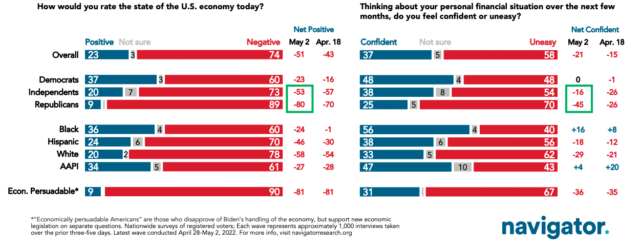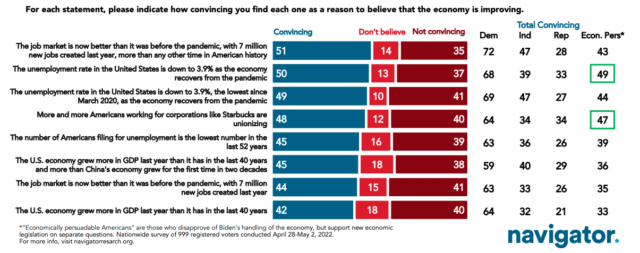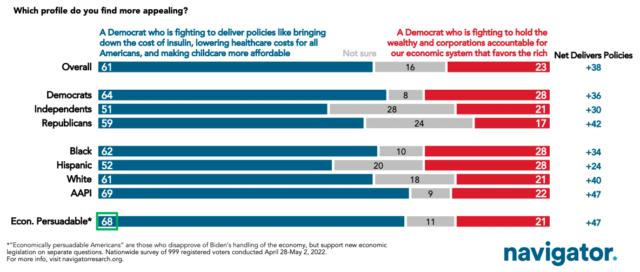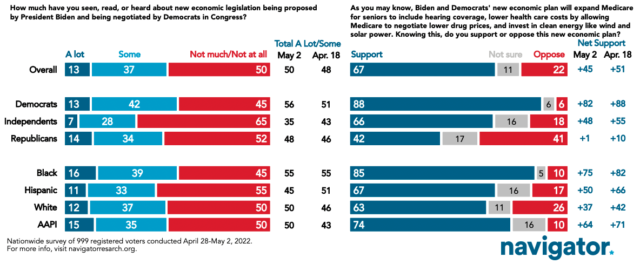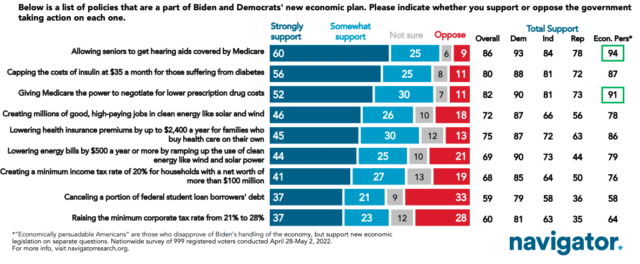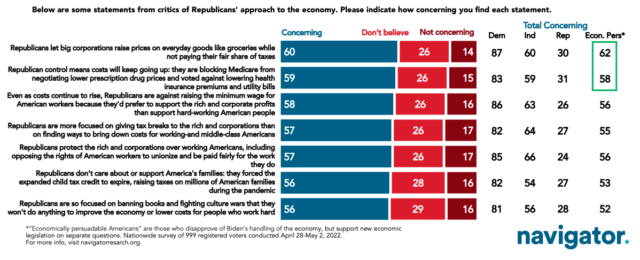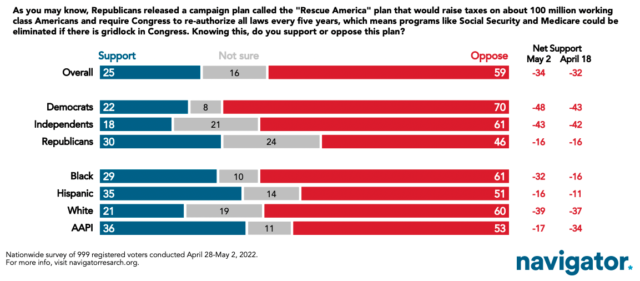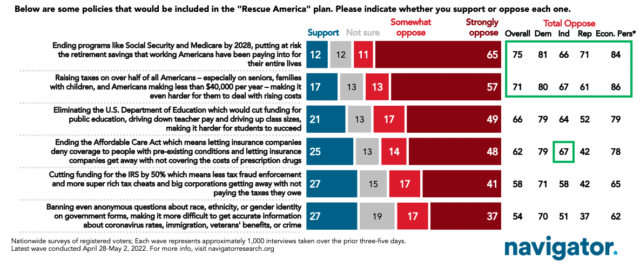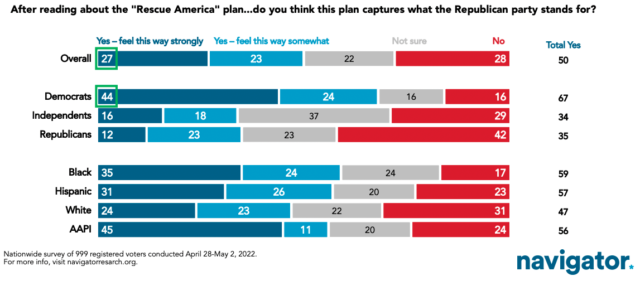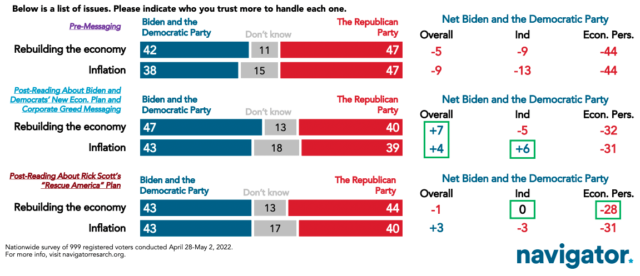- Americans say a strong job market and low unemployment numbers are the most convincing indicators the economy is improving.
- Biden and Democrats’ new economic plan remains popular, with top policies including Medicare covering hearing aids, capping the cost of insulin, and allowing Medicare to negotiate lower drug prices.
- The strongest messaging against Republicans on the economy goes after them for protecting the rich and corporations over working- and middle class Americans.
- Every policy tested from Republican Rick Scott’s “Rescue America” Plan is unpopular with a majority of Americans.
Views of National and Personal Economies Remain Negative
Independents have grown slightly more confident in their personal financial situation, though a majority (54%) are still uneasy; Republicans express deeply pessimistic views on the issue (70% uneasy).
- Nine in ten economically persuadable Americans rate the national economy negatively (90%) while 67% say they are personally financially uneasy.
A Strong Job Market and Low Unemployment Rate Are Best Reasons to Believe the Economy Is Improving
Among economically persuadable Americans, the low unemployment rate and recent unionization efforts are the most convincing reasons to believe the economy is improving.
A Democrat Delivering on Economic Policies Is More Appealing Than One Fighting to Hold the Rich Accountable
More than two in three economic persuadables (68%) prefer a Democrat who is delivering on economic policies.
While Just Half of Americans Are Hearing About Biden and Democrats’ New Economic Plan, Two in Three Support It
Top Policies in Biden and Democrats’ New Economic Plan Are Hearing Aid Coverage, Insulin Costs, and Lower Drug Costs
Among economically persuadable Americans, more than nine in ten support Medicare coverage for hearing aids (94%) and enabling Medicare to negotiate prescription drug prices (91%).
When Attacking Republicans on the Economy, Hits About Protecting the Rich and Corporations Are Most Effective
Economically persuadable Americans are most concerned Republicans allow corporations to raise prices while not paying their fair share of taxes (62% concerning) and that they oppose cutting prescription drug prices and lowering health insurance premiums (58%).
Effective Messaging Against Republicans’ Economic Handling Centers Their Protecting the Rich and Corporations
When testing a range of arguments against a Republican hit on Biden and Democrats for the economy that includes spending, recovery, and inflation, the best response calls out Republicans for protecting the rich and corporations over working people with mention of their opposition to union efforts. Weaker arguments pivot to book banning and culture wars.
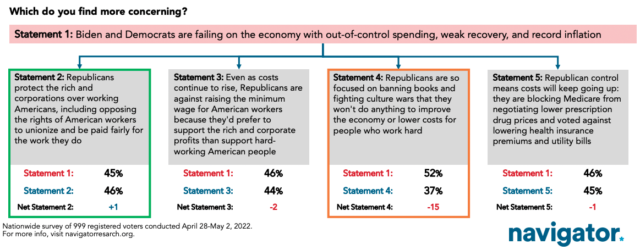
Republican Senator Rick Scott’s Economic Plan Remains Deeply Unpopular, Even Among Republicans
Scott’s plan is deeply in the negative with Democrats (-48 net support), independents (-43), and Republicans (-16).
Majorities Oppose Every Policy Tested from Republican Rick Scott’s “Rescue America” Plan
Overall and among economically persuadable Americans, the worst-testing policies are ending programs like Social Security and Medicare by 2028 (84% oppose among economically persuadable) and raising taxes on half of all Americans (86%).
After Reading About Republican Rick Scott’s “Rescue America” Plan, Americans Feel It Captures the Republican Party
Majorities of Democrats (67%) believe this plan captures the Republican Party, as do 34% of independents (37% are not sure).
Reading About Biden and Democrats’ Plan and Republican Rick Scott’s Plan Improves Views of Democrats on Economy
While Biden and Democrats start at a trust deficit on rebuilding the economy and inflation, messaging on Biden and Democrats’ new economic plan and about Republican Senator Rick Scott’s “Rescue America” plan help to improve views for Biden and Democrats.

